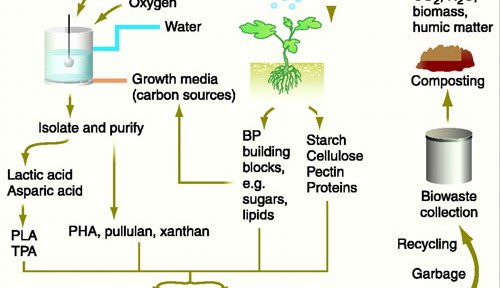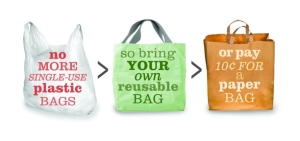Here is an interesting article that puts the definition of “Sustainability” into a bit more of a practical perspective. The dependency all people have on petroleum products is not limited to only automobiles & transportation. Sure, we can decrease usage and become more responsible with the resource, but to truly get away from all use of plastic products would be a step backwards for mankind in general.
As You Sow – Beverage Container Recycling
Outstanding publication with a great deal of hard hitting facts & stats. A great project for a watchdog group to hold Nestle Waters North America, PepsiCo and Coca-Cola accountable for their commitments. If they fail, who holds them accountable and what is the penalty?
Energy consumption, resources wasted & oil usage analogy will/should shake everyone up!
ALUMINUM CAN CONTINUES LEADERSHIP IN SUSTAINABLE PACKAGING AS MOST RECYCLED BEVERAGE CONTAINER
It looks like we have a most preferred, most sustainable & definitely the most recyclable type of single use consumer beverage container. With this type of data available, is there really any purpose behind producing plastic beverage containers? Eliminating the single use, plastic beverage container has to made a priority of all environmental groups. Only with one voice will this be accomplished. PLEASE! Everyone must support a group and get involved with hammering the manufacturers of the plastic/PET single use containers.
Aluminum | ALUMINUM CAN CONTINUES LEADERSHIP IN SUSTAINABLE PACKAGING AS MOST RECYCLED BEVERAGE CONTAINER
Recycling of HDPE Bottles Tops One Billion Pounds in 2012
After reading this, and then re-reading it again…it appears to indicate progress is actually being made in the recycling return rates of some types of single use plastic containers. Then again, if 1.6% is the best result and this is the 23rd annual report which puts the return rate at a stretched 30%, does that mean 50% will be achieved by approximately 2030? Does this actually equate to a success? The report from the CRI, (Container Recycling Institute) has not yet been released. They are considered the undisputed authority on recycling efficiency and effectivity. Their report will be shared as soon as it is available.
Recycling of HDPE Bottles Tops One Billion Pounds in 2012.
Illumin – Recycling Plastics: New Recycling Technology and Biodegradable Polymer Development
This Is A Must Read! One More Reason To Keep The Plastic Out Of The Landfills, Out Of The Waterways/Oceans AND Not To Incinerate Them!
Illumin – Recycling Plastics: New Recycling Technology and Biodegradable Polymer Development.
Proposed Plastic Bag Ordinance – Walnut Creek
Paper is a less costly recyclable material, and it does biodegrade very well. Plastic is really a no win for everybody for this particular use. They need to be discontinued as soon as possible.
Walnut Creek, CA – The City of Walnut Creek is considering an ordinance to prohibit the distribution of single use carryout bags in all retailers (except restaurants and non-profit charitable thrift stores). Under the ordinance, all grocery and retail stores in Walnut Creek would no longer provide single-use carryout plastic bags. Stores may sell paper bags for a minimum of 10 cents for each bag. Protective plastic or paper bags, without handles, for items such as meat, fresh produce, dry-cleaned clothes and prescription medications will be allowed. Consumers will have the option to bring their own reusable bags or pay for recycled paper bags. The City Council will consider the proposed ordinance as early as March 2014 (walnut-creek.org).
Another great Green article from Green Halo
Track your recycling at www.greenhalosystems.com
Follow Green Halo on Twitter at http://twitter.com/greenhalousa
The Benefits of Aluminum Recycling – Why Recycle Aluminum?
Status
Yesterday… Little Johnny Picked Up Soda Bottles,
Today… Little Johnny Picks Up Aluminum Cans.
In Fact, Some Little Johnny’s Pick Up The Aluminum Cans From The Entire Neighborhood & Take A Vacation!
The Benefits of Aluminum Recycling – Why Recycle Aluminum?.
How much oil is used to make plastic?
Is this NOT as important as Justin Bieber egging a house? C’mon…Amazing what the media is trying to make us believe is important!
If the media pounded on this information the same way they saturate us with Hollywood based mind pollution, we might actually be gaining some ground.
The attached post is link rich, hopefully most people will enjoy it.
In 20101, about 191 million barrels of LPG and NGL were used in the United States to make plastic products in the plastic materials and resins industry, equal to about…
How much oil is used to make plastic? – FAQ – U.S. Energy Information Administration (EIA).
Very Little Science, Plenty of Lobbyists…we need to keep this stuff out of the landfills ourselves!
Can Biodegradable Plastic be Recycled?
In April of this year, unusual packaging laws were proposed in North Carolina and Alabama. If passed, all compostable or biodegradable plastic containers will need to be labeled “non-recyclable.”
The Association of Postconsumer Plastic Recyclers (APR), which is the trade association of companies that recycles plastic, has long-opposed the use of degradable additives in potentially recyclable plastic. John Standish, APR’s Technical Director, says, “The real concern is the impact of a degradable additive once the plastic is recycled and used in second and successive applications. A great deal of recycled plastic goes into carpeting, geo-textiles, strapping, plastic lumber, and pipe. All are long-lived uses. Some of these products have a 30 plus year expected life span. What happens if the polymer molecules break down during the expected service life?”
APR supports the proposed legislation in North Carolina and Alabama, stating that degradable additives will impair the integrity of the recycling stream. Is that true? It would seem so. Biodegradable plastics contain at least five percent cornstarch or vegetable oil, which, according to the US Energy Information Administration, compromises the quality of recycled plastics.
Of course, there is very little science, at this point. Steve Alexander, APR’s director, claims they have repeatedly asked for proof that additives do not effect the recyclability. He concludes: “We have seen no credible supporting data.” Given that biodegradable plastics haven’t been mainstream for very long, there is little data to offer. And plenty of lobbyists with their own agenda.
Still, it makes sense that degrading plastic is not suitable for recycling, and bioplastics are confusing for the public. Many consumers believe that biodegradable containers are the most sustainable packaging possible, since they simply disappear. If you live in a city with excellent composting facilities, you’re in luck. However, if you drop a biodegradable container in the trash, it will simply sit in the landfill, like ordinary trash, since it needs sunlight and oxygen to decompose. If you drop a bioplastic container in the recycling bin… well… that’s another issue altogether.
If the bills are passed, they will go into effect in July, 2014. It will be very interesting to see how the battle between the recyclers and the composters unfolds…
– See more at: http://pkgpackaging.com/2013/07/31/can-biodegradable-plastic-be-recycled/#sthash.2MEuLAWY.dpuf
– See more at: http://pkgpackaging.com/2013/07/31/can-biodegradable-plastic-be-recycled/#sthash.2MEuLAWY.dpuf
– See more at: http://pkgpackaging.com/2013/07/31/can-biodegradable-plastic-be-recycled/#sthash.2MEuLAWY.dpuf
Why Recycle Plastic?
How about a page of information that actually makes sense about recycling plastic?
http://www.benefits-of-recycling.com/
has been added to our blog roll as well.
Recycle Plastics
Recycle Plastics / Keeping Up With the Trends
As the necessity for plastic bags as well as containers continues rising in various places such as grocery stores and retail stores, so do the requirements for the recycling of plastic products. Plastic products are now one of the most used materials in the world.
Plastic recycling happens to be one of the most advantageous ways for re-using plastic products. This recycling process remains highly effective for recycling many products, including clamshell packaging, grocery bags, food receptacles, and others.
Some of the more well known recycled plastics are juice and milk containers as well as water bottles.
Recycle Plastics / How it Plays Out
The recycling process for a plastic product begins by individuals separating them from there regular trash. Most communities have a trash collection that includes a bin for materials that can be recycled.
Once the plastic bottles and other recyclable materials are gathered from various businesses and households they are clumped together into bales at a recycling center. These bales can weigh up to 1200 lbs. Once weighed, these bales of plastic are ferried to a reclaiming company.
Afterwards, the plastics get split into various pieces before shredding them into some even sized smaller flakes. This process is implemented by a machine known as bale breaker.
Later these flakes are washed, dried and finally melted. Then a liquid is formed into several beads that have the capability of becoming many other diverse products including carpet, clothing, purses, jewelry, and other personal and household items.
Interestingly, the plastic bottles do not normally get re-manufactured as plastic bottles.
Recycle Plastics / Why Bother?
One of the most important reasons why we should recycle plastics remains hidden in the fact that plastics can take thousand of years to biodegrade. This means these bulky and plentiful plastic materials either continue to fill up landfills or they wind up in our streams and oceans and along the streets and meadows of our communities throughout the world. Plastics are known as the largest contributor of waste in the world.
As recycling statistics point out, plastics are not recycled as efficiently as they should be. And this very important process will never begin until we, as individuals, take responsibility for helping the environment.
Recycle Plastics / What is it, again?
Plastic recycling is the process of parting unwanted and/or used plastics and then using them thereafter as scrap for recovering usable materials. These usable products are normally extremely helpful in saving energy in the manufacturing process.
Plastic products, in most of the cases, contain many fibers due to its multilayer chemical structure. The resins, present in plastics, are melted down. This process is responsible for getting the smooth surface that one can see in the diverse variety of grocery and retail bags.
Recycle Plastics / Supply Meets Demand
The products made out of plastic are found everywhere in the world. Researched recycling facts show that as the dependency upon these light weight, durable, and cost-effective products increases the demand will also increase.
Over time, recycling companies have developed (and will continue to develop) a myriad of techniques for turning used plastics into a plethora of household and business products. These recycled products include paintbrushes, rugs, pillows and even boat hulls, railroad ties and playground equipment.
The future holds hope for the health of our communities and for our world. Doing our part by recycling plastics and other materials is one small task we can do to help in a big way.
Thank you for visiting the recycle plastics page. For more information on the importance of recycling follow these links:
Help the Environment by Recycling
Return From Recycle Plastics to the Benefits of Recycling home page.



